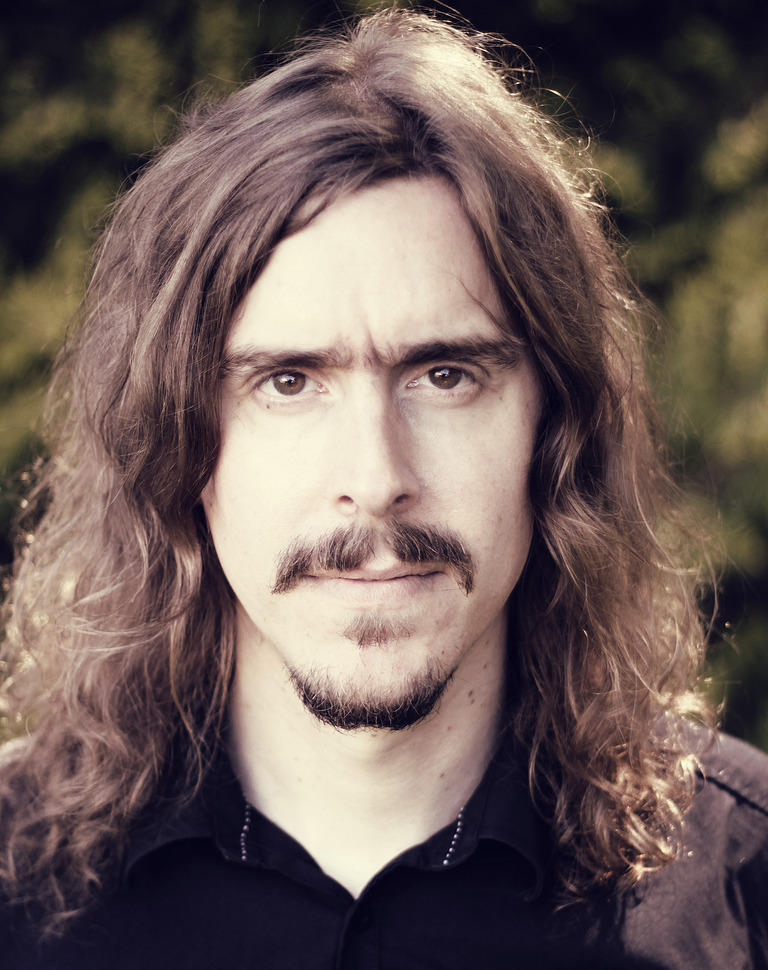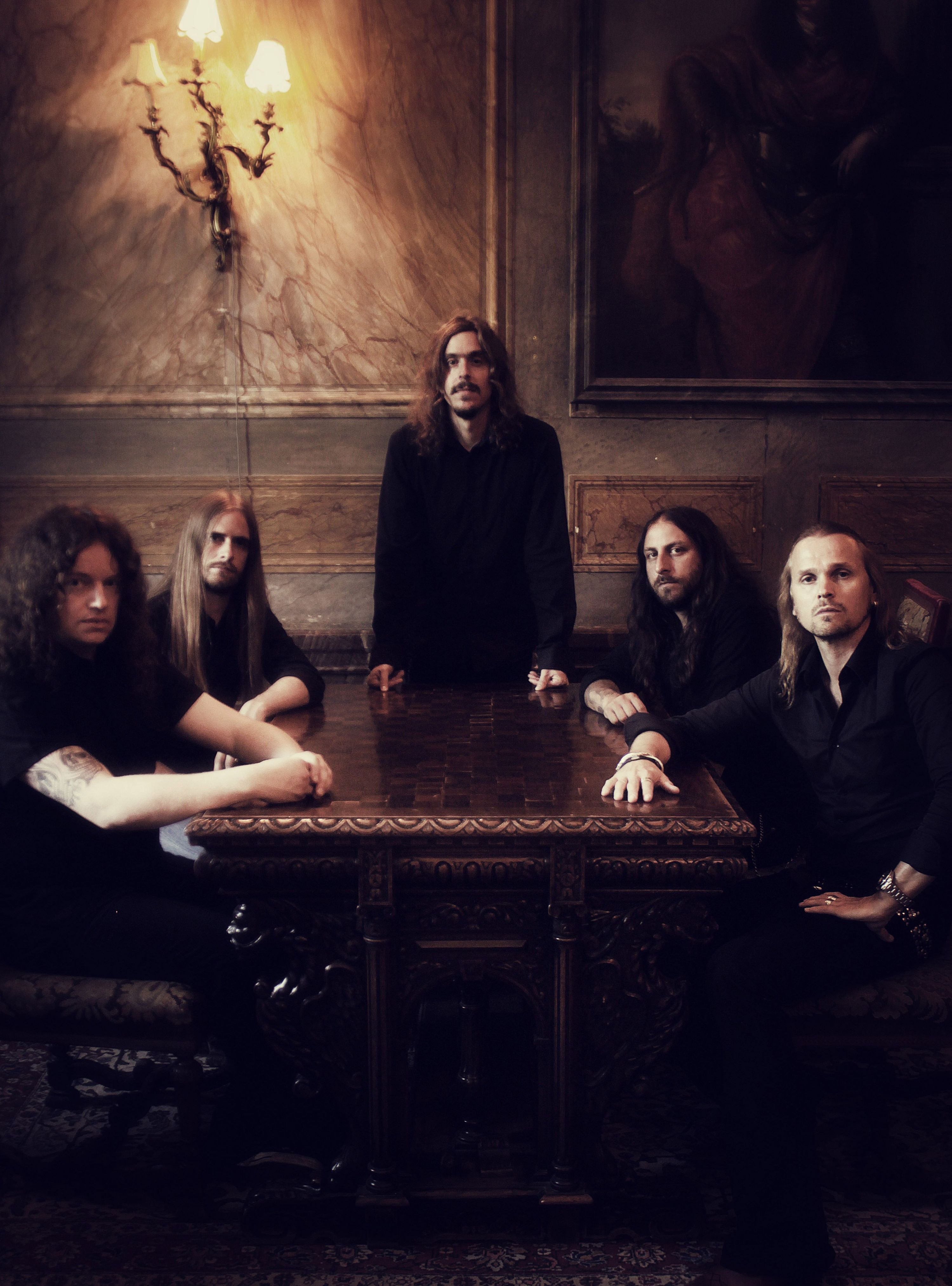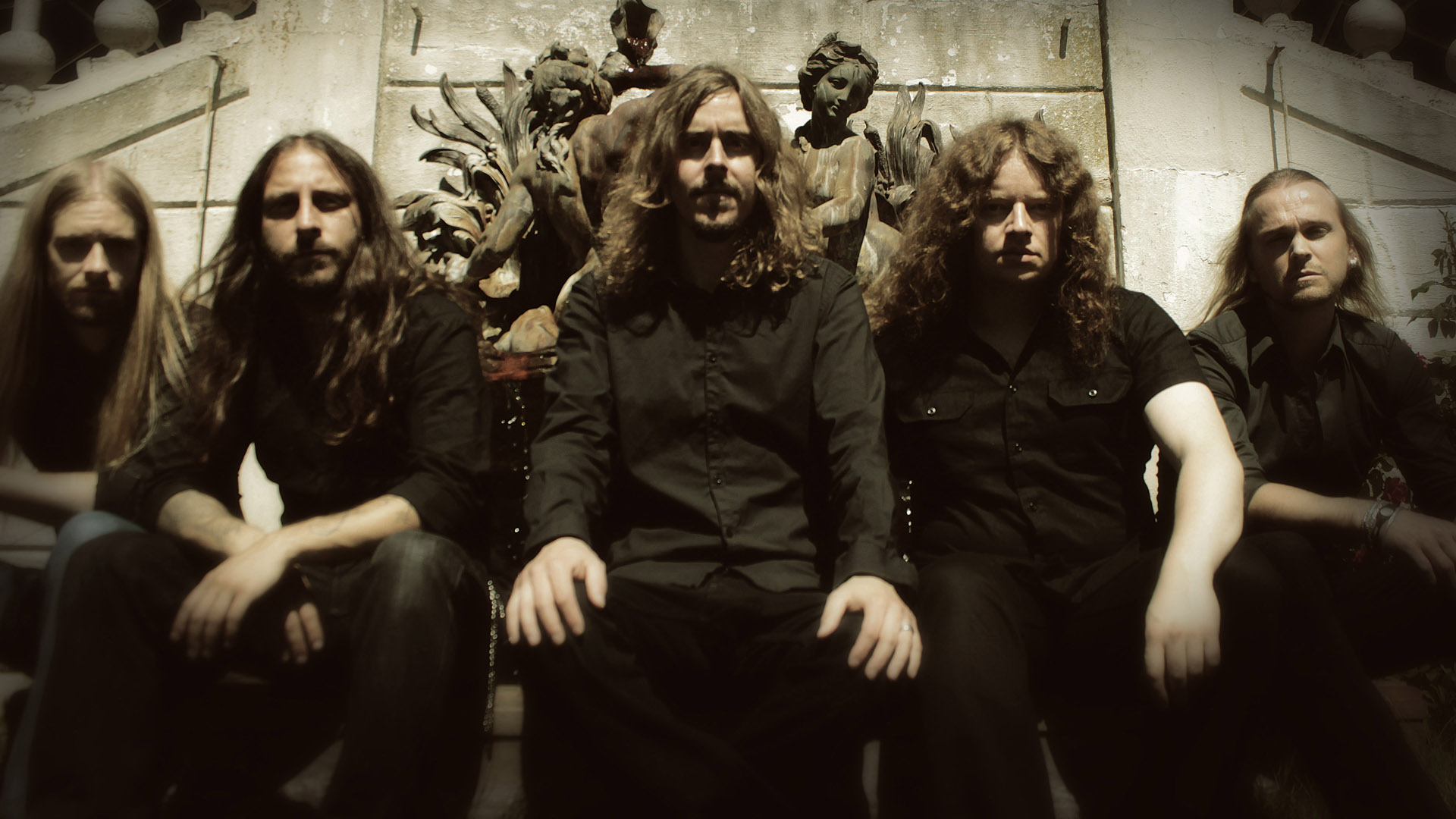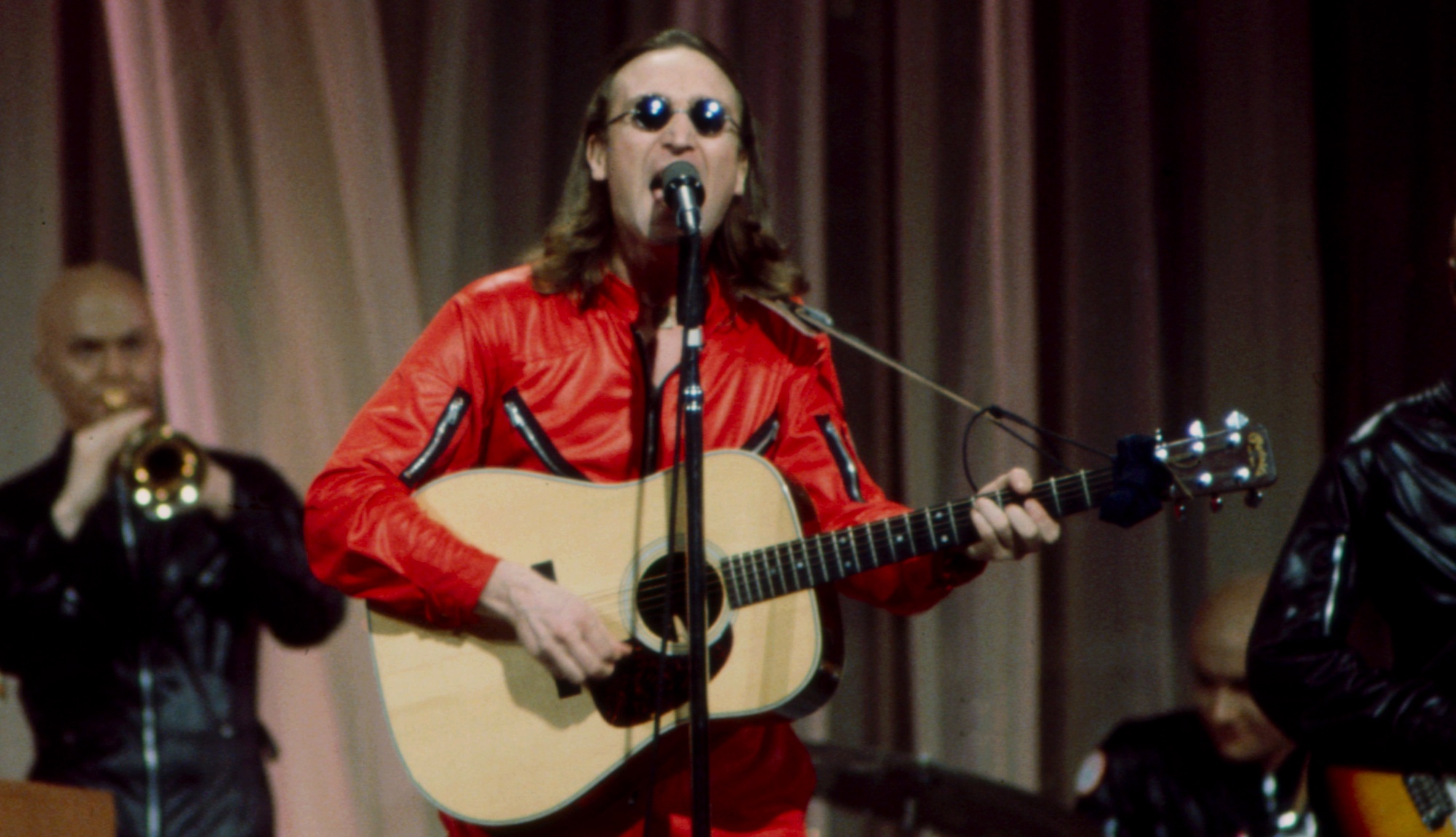Interview: Opeth's Mikael Akerfeldt Talks New Album, Gear and More
All the latest guitar news, interviews, lessons, reviews, deals and more, direct to your inbox!
You are now subscribed
Your newsletter sign-up was successful
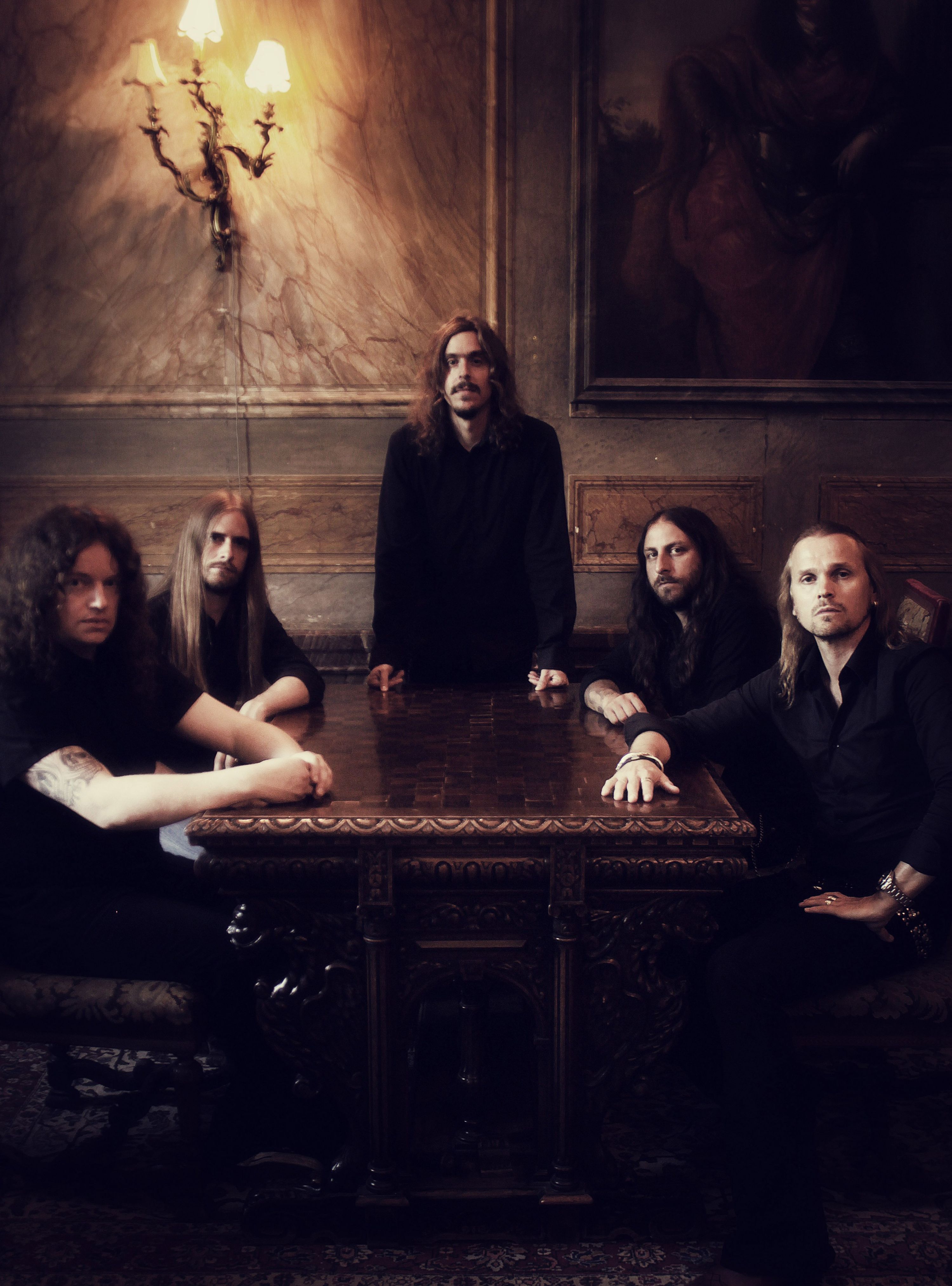
Swedish progressive metal stalwarts Opeth will soon release their still-untitled 11th studio album, the follow-up to 2011's Heritage, which saw the band veer toward an organic Seventies hard rock vibe.
While the new album continues along the same path, it offers some interesting variations.
I recently caught up with Opeth's Mikael Akerfeldt, who discussed the album in detail, its production and gear setup — and his newly acquired Gibson Flying V.
Check out part 1 of the conversation on Metal Assault here, and read the second part below.
GUITAR WORLD: You’ve gone for an old-school production style on this album, a style that was prominent on a lot of Seventies and Eighties albums. What's the story behind that?
In our genre, or in the metal scene, I think most bands tend to go for a really modern, contemporary metal sound, which is cool, I guess, but it’s not something we like so much. It fits our music better to do it a bit more old-school and to have more of an organic, warmer sound. That’s what we’re opting for on this album, and we did that on the last one too.
Aside from the production, what kind of gear did you use to achieve that sound?
All the latest guitar news, interviews, lessons, reviews, deals and more, direct to your inbox!
Guitar-wise, we had a bunch of Marshalls. We’re endorsed by Marshall. The amp we ended up using the most was the Yngwie Malmsteen signature model, mainly for the rhythms. We also had a Marhsall Bluesbreaker combo that sounded fantastic. Then we also had the Joe Satriani signature head and 1960 cabs. We had two of those, but I think we ended up using only one of them.
Guitar-wise, everything came from PRS. I also played on a newly acquired Gibson Flying V, a ’79 — and a couple of Strats. I have a ’68 Custom Shop acrylic Strat that sounded great and a ’62 Strat I picked up and put the body and the pickups together myself. I left it to a guitar shop that has one of those plec machines, which gave it a really, really nice setup.
Frederik also used his old Gibson Junior P90. Oh, and the acoustic parts were played on the PRS Angelus. Frederik and I have one each of those and we use that for all acoustics. So we have a bunch of stuff and some pedals. But we kept pretty simple with a nice, easy setup, and Frederik was really active in setting up the sound. He’s pickier and pays more attention to detail than I do. So he was really bossing me around for the sound of the guitars.
You mentioned a Gibson Flying V. Is that something you’ve even used in the past — ever?
No. I have a ’67 reissue that’s just been collecting dust and I hadn’t been playing that one much, but then I bought this white one because I’m a big Accept and Scorpions fan. I found it on eBay. The guy sold it from Hawaii, I got it and played it, and it was amazing. Frederik absolutely loved it too. We ended up playing a little bit of the new music with it.
Are you going to use that live as well?
No, we’re endorsed by PRS so when we play live we only play PRS guitars. But you never know. If there was a song that absolutely needed a V or whatever it might be, of course I would play it. PRS isn't going to cut our throats if we play another brand, but we are really, really happy with PRS. They’ve basically given us all we need when it comes to guitars. To this day we’ve never had a problem with any of their guitars. I think we’ll just stick to playing PRS live and support them.
The acoustic guitar is something that doesn't get mentioned enough, especially in terms of your sound.
I used to work at a guitar shop in Stockholm, and we only sold acoustic guitars. That’s where I developed my love for the acoustic guitar. I started working there before we recorded the first album, so I wrote a lot of music on acoustic guitars and wrote a lot of acoustic parts. That’s kind of escalated with time, and now, I don’t want to draw comparisons with Led Zeppelin or anyone like that, but I think we are as much an acoustic band as we are an electric band these days.
When it comes to playing live, how do you deal with delivering the acoustic parts amid the amplified instruments? Is it more difficult than it looks?
It’s pretty hard, actually. We started doing it just in recent tours. In the past, if we had an acoustic section, we just played it with clean electric guitars. But during the last couple of tours, we’ve actually been playing acoustic guitars on stage. Sometimes it’s like a switch in the middle of a song, which can’t be possible for us unless we have stands and stuff like that, which looks too pretentious to be honest, so we don’t do that.
But if there’s time to switch guitars, we will do that. We also have a section of the show where we play a few acoustic songs in a row, so obviously we switch to acoustic guitars to do those songs. But generally, if we can’t switch guitars in the middle of the song, we just play with clean electric guitars.
When will the new album be released? And you don't have a titled for it, right?
No, we don’t have a title, but we’ll probably have that within the next week or so. And the release, from what I've heard, if we deliver everything on time, it’s going to be out in June. That’s what I know.
June? I thought it’d be a fall release.
No, they wanted to get it out in time for some of the summer festivals we’re doing in Europe. But it all comes down to us, and we ultimately have to deliver everything. But the album is done, sequenced and mastered. We just have to come up with the title and the artwork, and we’ll be set to go.
After the festivals, you’ll be getting on a full touring cycle, correct?
Yeah. It still feels a bit early for me to think about touring, but that’s the reality, I guess. We’ve talked about starting in Europe in the fall, September/October or something like that, and then just doing the whole thing again like we always have, come back and play North America and play wherever we can, wherever there’s demand and play as much as we can.
Andrew Bansal is a writer who has been running his own website, Metal Assault, since early 2010, and has been prolific in covering the hard rock and heavy metal scene by posting interviews, news, reviews and pictures on his website — with the help of a small group of people. He briefly moved away from the Los Angeles scene and explored metal in India, but he is now back in LA continuing from where he left off.
